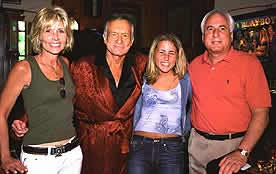Some people
think that hi-tech is the answer to creating success. It can
be a part of the answer, but the purpose of games is entertainment
(fun), whether by hi- or low technology. Game play comes before
presentation.
Pinball
is a small part of our game industry, but manufacturers and
operators should strive to preserve every genre of game. Touchscreen
games and charging AWPs may have the largest market share.
However, if we lose dart games, videos, pinball, pool tables,
etc., then the operator will no longer have available alternate
and additional forms of entertainment to provide locations
and players.
What is
popular today may wane over the years, because of both new
entertainments and rejuvenation of older forms. Witness today
the renewed popularity of Pacman/Galaga, especially in America.
All style and entertainment
follows this cycle. "What goes around comes around."
Outside of our industry the popularity of retro products like
the new VW Beetle and the Chrysler PT Cruiser is evident.
I distinguish between nostalgia (driving old Beetle) and retro
(modern Beetle, fun to drive). Similarly, remakes of older
movies are very popular but made with today's special-fx.
Proper style of
game play broadens the player base for all games -
hi-tech, low-tech, retro. Many games became too hard to play.
Games were made harder to play as players got better. The
experienced player base aged, not frequenting our locations
as much; the new patrons are not good enough players to enjoy
the games. Our industry's products are played by too few of
the patrons in a location. Games should be fun for all players.
Stern Pinball has
enhanced its pinball in a number of ways. We have changed
design concepts, continuing to challenge the great player
so as not to lose our established base, but also making the
game fun for the casual player. More important, we make mechanical
action pinball. The casual player understands mechanical parts
changing when hit by the ball. The simplest example is stand
up targets vs. drop targets. Casual players do not see the
light turn on in front of a stand up target when hit. They
do see a drop target fall when hit. The casual player feels
satisfaction of accomplishment; he has taught himself what
to do (self-educating); he wants to do it again (Pavlovian
pinball).
We have added more
"toys" to our mechanical action pinball, making
retro pinball, not nostalgic. Players have fun with ramps.
Playboy centrefolds and tease screens, Monopoly water works
and banks, and more.
We utilise licenses
for our game themes, selecting licenses with longevity. Playboy
and Monopoly are well-known successful licences on pinball
machines or other coin-op products. Austin Powers has a multi-movie
history and a new movie coming out this summer. A licensed
title gives the designers ideas and a framework within which
to design.
We have enhanced
our design teams as the industry shrank to include other successful
designers. Monopoly was designed by Pat Lawlor, known for
his Addams Family, Fun House, Twilight Zone and many others.
Playboy was designed by George Gomez, best known for Monster
Bash. These designers make games that are fun.
We have improved
reliability and serviceability. Some operators do not want
to operate pinball because of service. Similarly, some don't
want to operate video games because the games must be moved
around locations. In America many locations bought their own
easy to operate pool tables and took over the inexpensive
service. This trend continues with other products. If operators
choose only the easy games to operate, where is the value
added by the operator? Not only will the operators lose the
potential of various genres of games, but without adding value
the can become dispensable.
Finally, with all
the above and more, we have improved pinball's ROI (return
on investment). Games are better designed and attract more
players, earning more because they are fun. The games are
more service free. And the games have a great resale value.
With rational levels of pinball machine production in recent
years, there is a shortage of good used games, for sales to
operators and for sales to homeowners, particularly in America.
The result is a high resale value worldwide for pinball. This
may be unique to pinball.



